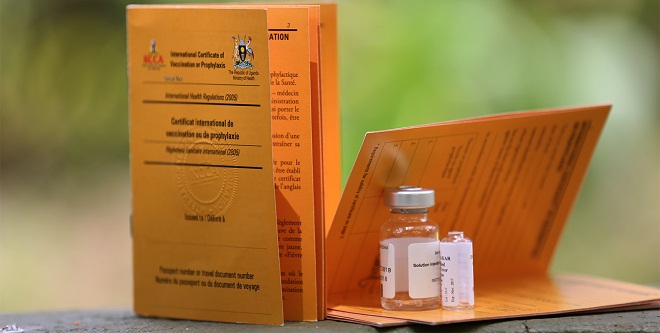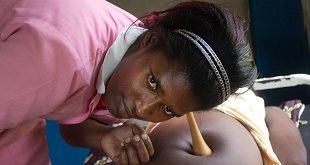
Kampala, Uganda | THE INDEPENDENT | The Ministry of Health (MOH) has started immunizing children aged nine months against yellow. This brings the total number of diseases being immunized under the routine immunization programme to fourteen.
While this had earlier stalled having first planned to start in October 2022 during the Integrated Child Health Days campaign, the Ministry of Health says they have now acquired enough vaccines. They say that the children will be vaccinated against yellow fever at the same time as they are receiving their measles-rubella jab.
“Uganda is committed to controlling yellow fever transmission,” Health Minister Dr Jane Ruth Aceng Ocero said in a statement. “We want to ensure that our people are protected against this high-threat disease, and vaccines remain the main tool we have to efficiently prevent and contain yellow fever outbreaks.”
Uganda is one of fourteen countries in Africa that reported confirmed cases of yellow fever in 2022 even though there is a global campaign to eliminate the disease. The country has also been recording sporadic outbreaks of the disease occurring every three to five years.
However, experts at the World Health Organization (WHO) say only less than 10 percent of the population have been immunized against it even as there have been initiatives such as having travelling Ugandans present their proof of immunization when entering several countries.
Dr Yonas Tegegn Woldemariam, the WHO Representative in Uganda says the introduction of the vaccine into routine immunization will now help in prevention efforts as prevention of outbreaks can only be achieved if the majority of the population is immunized.
Yellow fever is transmitted by the Aedes Aegypti or Haemagogus mosquito species and outbreaks in Uganda originate mainly from sylvatic, or jungle, transmission. Mosquitoes acquire the virus by feeding on infected primates and then bite humans during agricultural and other activities in forested areas. Humans can then carry the virus to other areas, including urban centres, where it is spread by mosquitoes from human to human.
Yellow fever infections can cause serious illness and, in up to 30–60 per cent of severe cases, death according to experts currently, there are no specific therapeutics to treat the disease, but early supportive care increases survival rates.
“The recent rise in disease outbreaks and the risks they present is why Uganda’s introduction of the yellow fever vaccine into its routine immunization programme is so important,” said Thabani Maphosa, the Managing Director, of Country Programmes Delivery at Gavi, the Vaccine Alliance.
Only a single dose is needed for life-long protection.
“There is no cure for yellow fever. It can only be prevented,” said Dr M. Munir A. Safieldin, UNICEF Representative to Uganda. “A single dose of yellow fever vaccine is sufficient to give an individual life-long protection against the virus”.
Now, in addition to the roll-out of yellow fever vaccine within routine immunization, a new statement by the ministry of health shows Uganda will also start implementation of a phased preventive mass vaccination campaign (PMVC) by administering 13 million vaccine doses in 2023, for which Gavi has provided funding through a campaign operations grant.
****
URN
 The Independent Uganda: You get the Truth we Pay the Price
The Independent Uganda: You get the Truth we Pay the Price



